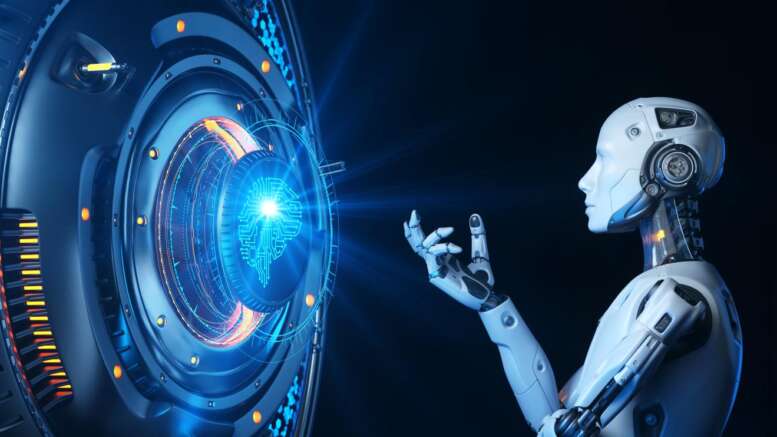Whether you work in a technical or non-technical domain, artificial intelligence or AI is a term you might come across every day. In fact, it might even have some use in your day-to-day life. For instance, how many of us use Google Lens? The platform works on the principle of artificial intelligence to identify text and objects through your camera and allows you to interact with those elements differently.
Similarly, AI is associated with many such applications, where it acts as a simulation of human intelligence. It utilises existing inputs to learn, adapt and make decisions. But there is still a big mystery surrounding AI and its role in enhancing the world’s technological landscape. Let’s try to put these queries to rest.
Artificial Intelligence – What does it Entail?
A survey by DataProt yielded some interesting results about artificial intelligence:
- Approximately 37% of businesses use AI for their day-to-day operations.
- As more AI-driven processes emerge, it will create 97 million new jobs in 2025 while eliminating 85 million jobs in the same period.
- The contribution of AI to the global market promises to reach a value of $15.7 trillion by 2030
When someone talks about AI, it might strike as a computer system performing numerous complicated calculations to analyse and utilise inputs. However, the AI floating around is concerned chiefly with Machine Learning only.
Machine learning involves the development of systems that can continue to evolve and adapt by using statistical models and algorithms. These tools will help the computer systems draw inferences from patterns in data. It utilises popular programming languages like Java, Python and R.
Although the core concepts look promising, does AI have the power to revolutionise technology?
How is Artificial Intelligence Impacting the Technological Landscape?
Given that artificial intelligence employs intelligent computer systems that constantly adapt, it is no surprise that it is on its way to replacing manual analysis and decision making. The impact of this tool is not limited to a single domain but numerous sectors like finance, HR, and language processing. Let’s see how AI affects each of these sectors.
Human Resources
Perhaps the most tiring job of HR executives is to filter out candidates by skimming through thousands of resumes, sometimes in a day. But what happens if the company has a robust digital employee referral system in place?
Not only do these referral systems streamline the hiring process, but they also utilise AI to analyse and suggest potential candidates from the network. Ultimately, these AI-driven suggestions can help organisations hire reliable candidates who can add to the existing company culture and possess relevant skills for the role without wasting days.
Finance
The applications of AI in Finance cover a wide range, from allowing individuals to better assess and predict loan risks to helping companies improve loan underwriting and reducing financial risks. It is also instrumental in avoiding fraud by detecting anomalous activities.
Artificial Intelligence is indispensable for banks and corporations as a tool that goes through hundreds of credit scores. To better understand this, assume you are a bank providing credit cards to users based on their credit scores. However, simply grouping people into two groups based on good or bad credit scores won’t suffice.
Instead, AI helps you go through your database to analyse other factors like loan repayment patterns and the number of credit cards to customise interest rates on individual cards. Since AI is a constantly adapting entity, it can make recommendations on the interest rates after scanning through this data.
Transportation
With all the buzz in the market about autonomous cars, it is impossible to undermine AI’s influence on the transportation sector. Autonomous cars are capable of sensing their environment and operating smoothly without human involvement. This AI-embedded machine does not require a passenger nor any human to take hold of its controls.
These cars work on complex algorithms, sensors, machine learning systems and dedicated processors. The sensors in different parts of the car keep track of the surroundings. The cars also have video cameras that view and analyse traffic signals, road signs, pedestrians and other vehicles. The actuators of the car plot the path and control the acceleration, braking and steering after deriving input from the sensory components of the machine.
Healthcare
The healthcare sector relies on diagnosing diseases and disorders early to combat them in their nascent stages. AI helps solve this since learning algorithms promise to make better decisions after being fed with inputs. Ultimately, AI-driven insights into healthcare will allow medical professionals to chart a new way for diagnosis, treatment variability, care processes and patient outcomes.
The advent of Brain Computer Interfaces (BCI), programs which utilise artificial intelligence to create a direct interface between technology and the human brain, has been nothing short of revolutionary for healthcare. It helps restore the experiences of moving, speaking and interacting meaningfully for patients who have lost them.
Education
Numerous issues already plague the educational sector, and teachers can’t pay attention to a specific student’s needs in a class of thirty. However, AI-driven virtual tutors can achieve this by engaging in one-on-one sessions with students. They can assist tutors in gauging students’ expressions to know if they are bored or simply not enjoying the lesson. Accordingly, they can aim to alter the learning experience.
Summing Up
Artificial Intelligence is also emerging to play a significant role in manufacturing and customer services by utilising AI-powered robots. Not to mention, technological giants like Google and Facebook are relying on the benefits of AI, investing millions of dollars in the research of new technologies.
It remains to be seen how AI contributes, especially with spaces like the Metaverse claiming to change the technological landscape. However, it is certain that AI is still not being utilised to its full potential, and targeted research will help bring out more applications for this model.


Be the first to comment on "Artificial Intelligence and its Role in Revolutionizing Technology"